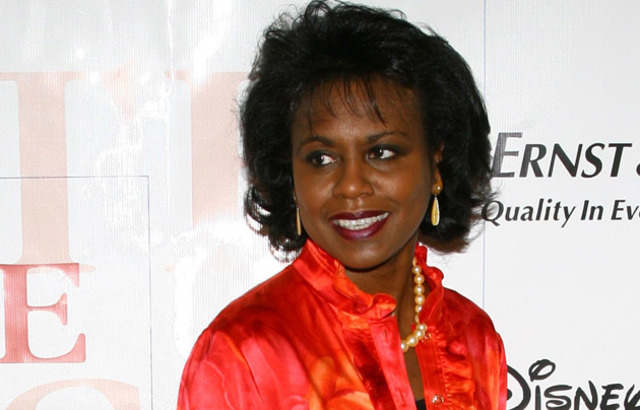On July 2 the 1964 Civil Rights Act turns 50. This sweeping piece of legislation outlawed discrimination based on race, color, religion, sex or national origin. It also ended segregation in schools and workplaces and made voter registration barriers like poll taxes illegal. I spoke with Anita Hill before she gave a keynote address about the Civil Rights Act at an event held by Equal Rights Advocates. We talked about the civil rights movement, her role models, and the lessons she learned from testifying against Clarence Thomas before the Senate Judiciary Committee.
How has the Civil Rights Act influenced you personally?
It’s interesting. I grew up in rural Oklahoma. I had parents who voted regularly so that part of the movement didn’t necessarily resonate with me. I grew up with 12 siblings and [many] of them went to segregated schools. But my brother and sister closest to me in age went integrated schools so I could relate to that part of the movement. I never experienced the violence, but when I saw the young people like Diane Nash and John Lewis putting themselves on the line, when I saw children being hosed and being arrested it was real for me. As an adult I’ve grown to appreciate the profound effect of these times.
What impact has the civil rights movement have on your career choice?
The first time that I understood that I could be a lawyer was after seeing Patricia Harris. She was the first black, female lawyer I had ever seen. I saw Barbara Jordan. I saw Constance Baker Motley actively representing plaintiffs who were trying to get into segregated schools in the South. These women in the movement inspired me.
Did the civil rights movement give you the strength you needed to testify about Clarence Thomas’ sexual harassment before the Senate Judiciary Committee in 1991?
I didn’t consciously say that I was just like the people who had hoses turned on them. [My ability to testify] came from knowing my background. My parents were born in 1911 and 1912. Knowing the kind of racism they had experienced and the blatant sexism and dismissiveness that my mother endured allowed me to go through that kind of hardship. This was just another episode that said our experiences didn’t matter. That’s what the senators were saying, that my experience wasn’t as important as a man’s, an African-American man’s.
What’s the biggest lesson you learned from that experience?
I learned a lot of lessons. Most people don’t go before the Senate Judiciary Committee, but in hearings I tell people, "Your job is to be clear, truthful and honest. Your job is to tell the truth. Their job is to be open. If you do your job, if you’re clear, honest and frank you can’t beat yourself up when they react in [negative] way.
Here’s a wild card question: What do you think of hashtag activism?
I think what we have to do is use all of our tools. Some people can accomplish things on Twitter, for others Twitter boxes them in. I think [hashtag activism] is best understood as raising public awareness and engaging people in conversation. I think the #yesallwomen hashtag was effective. It was the first time I heard people connecting sexual harassment and gender-based murder in the same sentence. It dealt with the whole spectrum of behavior, not just murder. It talked about the harassment that women experience every day and it asked, "How do these things work together?"
Where do you think we are in terms of civil rights after the gutting of the Voting Rights Act and the fact that schools are more segregated than ever?
We aren’t where we should be. I was having a conversation with someone who said that the civil rights movement worked because it was grassroots in the ’60s and that the courts weren’t as effective. But we have to keep fighting. Maybe we did rely on courts too much but that doesn’t mean we stop. We still need grassroots activists to talk to people and hear from people. All things need to be continued. We’re not where we should be, but that doesn’t mean that we give up and call it a day.
